The separation between Belgium and the Netherlands has not been natural. Philip II of Spain hastened it, mainly intending to suppress Calvinism which carried an anti-feudal approach, while capitalism strongly developed in the area.
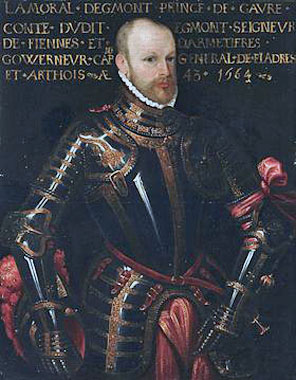
The impossibility of maintaining unity is due to various reasons and speeded up the military defeat in the Belgian zone. Belgium is as readily a crossing point, which is testified by the many wars historically waged there, as the northern part was partly preserved from these military offensives in its opposition to Spain, thanks to the canals.
Another important factor was capitalism’s greater development in the southern area. It led the patricians and the aristocracy to wish to avoid an open clash, which would have set in motion a nascent proletariat, which was already numerically sizeable, and therefore threatening. It can be seen, among others, from the fate of the stadhouder and Knight of the Golden Fleece Lamoral, Count of Egmont, who was beheaded by order of the Council of Troubles serving Spain.
The Netherlands’ coastal orientation has to be emphasized. It had bigger ports than Belgium and it had more interest in a confrontation with Spain to try to break its maritime monopoly in America and Asia.
The Catholic forces historically bound to feudalism naturally strengthened during the Spanish intervention. They were, moreover, better established in the South than in the North.
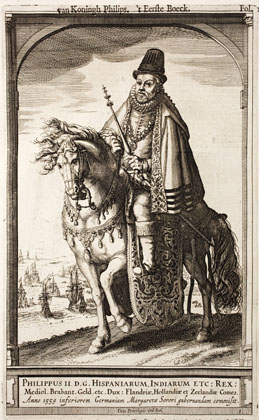
The main consequence of the separation between Belgium and what was to be the Dutch Republic consists in the triumph of Catholicism and in a wave of general « recatholicization » in the society, in the spirit of the 1566 Lettres de Ségovie written by Philip II of Spain.
The Inquisition and a feudal refusal of whatever strengthened capitalism caused a terrible stagnation of Belgium, all the more reinforcing the intellectuals as well as the cultural and social Catholic influence, in particular with its « charity » policy.
The general states gathered for the last time in 1600; the political and cultural life faded, while the country became an isolated backyard of Spain. The comparison with the historical, cultural and intellectual wealth of the Netherlands at the same time, with its bourgeois tolerant politics, is all the more striking.
When Spain historically collapsed, Austria took possession of Belgium, which from « Spanish Netherlands » became « Austrian Netherlands ». It was however only one aspect of the dependence which was developing at the time.
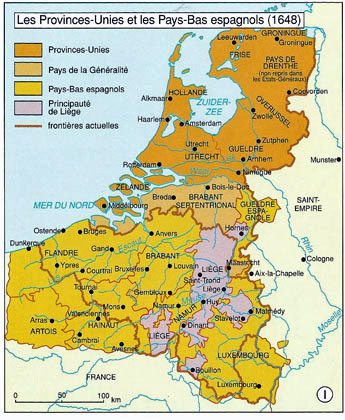
With the Barrier Treaty at the beginning of the 18th century, the Dutch Republic took possession of some Belgian fortified towns. It had the massive support of Great-Britain, which wished to counter the French expansionism and to avoid its geographical moving closer.
The importance of centrifugal and clerical forces in Belgium allowed this situation. These forces could even lead the Brabant Revolution, which gave birth to the short-lived United Belgian States in 1790, in opposition to the absolutist policies of the Austrian emperor Joseph II.
Historically, the Belgian clergy, joined by the Hungarian aristocracy, sealed the fate of the Austrian empire unable to become an absolute monarchy and to tear itself away from a powerful feudal base.
The natural effect of this situation was Belgium’s deepening by further strengthening the clergy and widespread reaction. This made the country very vulnerable in front of French expansionism.
This historical moment of Belgium’s dependence stemmed from the non-emerge of a bourgeois national liberation movement against the Austrian emperor. The reaction took charge of the opposition to Austria, trying to maintain the urban privileges, which kept the country divided, as well as the clergy’s position of strength.
Given that the French expansionist intervention also spread values linked to the French revolution, it deeply disturbed the existing Belgian historical national structure.
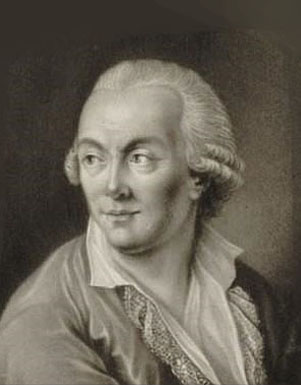
Initially, during the 1790 phase of the United Belgian States, Henri van der Noot’s clerical forces called the « statistes », appropriated the national issue at the expense of Jean-François Vonck’s republican forces. However, when France took control of Belgium, first in 1792 and then in 1794, anti-feudal reforms were carried out, particularly at the expense of the clergy.
This means that the democratic question was paradoxically answered on an anti-national basis. It had two consequences. On the one hand, there was a strong tendency to support the French expansionist and republican impulse allowing the development of the bourgeoisie. On the other, there was a tendency to reject this evolution, as evidenced by the episode of the war waged by some sectors of Flemish peasants in 1789, compared with the Matins of Bruges and the Battle of the Golden Spurs when, at the beginning of the 14th century, Philip IV’s annexation attempt was defeated.
At the time of the Napoleonic collapse, Great-Britain wanted to avoid the formation of an independent Belgium at all costs. The reason was that a historical liking for France had appeared amongst a section of the population. Therefore, its annexation by the Netherlands was organised.
The Belgian area had more inhabitants than the Dutch one – more than 3,5 million against 2,5 million. However, it remained from the start well away from power, both politically and administratively, thus organizing a virtually colonial scope.
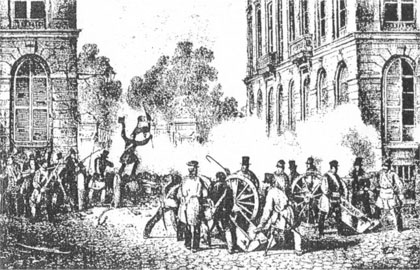
In 1870, one out of seven ministers, one out of 117 high ranking officials of the Interior ministry and 288 out of 1967 arming officers were Belgians. The Netherlands also brought a two thousand million national debt, while Belgium’s one was of only 30 millions.
The situation didn’t last long before the battle for independence. During the Belgian Revolution, there were only 17 bourgeois amongst the 456 killed, and 41 bourgeois amongst the 1226 wounded.
The Belgian people’s base was beginning to historically assert itself. They tried to find the path towards a democratic revolution, while socialism began to assert itself due to the growth of capitalism, thus of the proletariat.
The industrial revolution, with the advances in production industries and the emergence of the steam engine, transformed Belgium which became a hub, thanks to coal production.
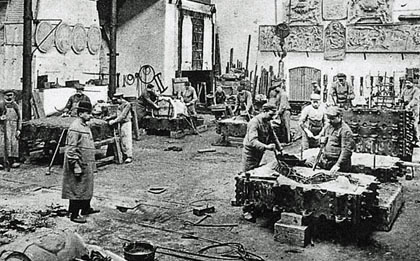
It grew annually from 2,6 million tons in 1831 to 10,6 in 1861 and then 22,7 in 1901. This means that in the middle of the 19th century, if Belgium produced far less coal than Great-Britain (45 million tons), it already surpassed Germany and France who respectively produced only 3,5 and 3,4 million tons.
The canal transport has been put aside since the Netherlands gave an access to the sea. Yet, in 1870, there were 863 kilometres of State-owned railway lines and 2231 kilometres belonging to private companies; in 1879, there were already 720 railway stations.
In his Capital, Marx noticed about Belgium :
« Belgium, the paradise of Continental Liberalism shows no trace of this movement. Even in the coal and metal mines, labourers of both sexes, and all ages, are consumed, in perfect « freedom » at any period and through any length of time. Of every 1.000 persons employed there, 733 are men, 88 women, 135 boys and 44 girls under 16 ; in the blast furnaces, also, of every 1.000, 668 are men, 149 are women, 98 boys and 85 girls under 16. Add to this the low wages for the enormous exploitation of mature and immature labour power. The average daily pay for a man is 2 shillings 8 pence, for a woman, 1 shilling 8 pence, for a boy, 1 shilling 2,5 pence. As a result, Belgium had in 1863, as compared with 1850, nearly doubled both the amount and the value of its exports of coal, iron, etc. »
The progress of capitalism in Belgium naturally implied the appearance of a numerous and concentrated proletariat. Bearing democracy, the latter was in direct confrontation with the nature of the regime born in 1830. The bourgeoisie saw to it that only 44.000 people were allowed to vote after independence, within a parliamentary monarchy.
Kautsky noticed :
« Marx, along with Engels, lives in Brussels until 1848. There, they worked on the foundations of their new teaching and wrote The Communist Manifesto. Inasmuch as we want to call one single country as the native land of Communism, Belgium has the right to claim this designation for itself. As a transit country where German, French and English influences and ideas met, Belgium offered the appropriate soil for an international teaching which united in a higher unity the German philosophy, the English economy and the French spirit of revolution ».
Unlike the numerous and uncoordinated scattered rebellions attempt, as the Belgian strike of 1886, the social democracy born by the Belgian Labour Party in 1885 developed a mass line leading to many massive political strikes in 1891, 1892, 1893, 1902 and 1913.
In this context, one of the well-known and widely spread works was Catéchisme du Peuple by Alfred Defuisseaux (300.000 copies handed out). The workers’ campaigns resulted in the broadening of the right to vote. The universal and egalitarian suffrage was established in 1913.
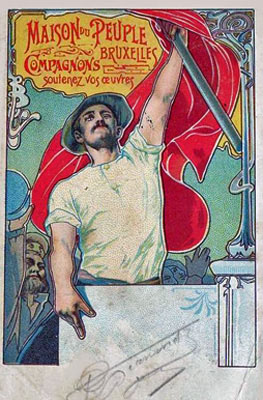
Social democracy had yet a problem. Within the Belgian context, it contented with calling to the fulfilment of the democratic tasks that the bourgeoisie had not been able to put into practice, while picturing it as a socialist phase.
The Belgian Labour Party was not able to really understand Marxism; it only positioned itself as a genuine democratic party, as can be noticed as regards its stances on education, while half of the population was still illiterate in 1866, as well as on the arts and against alcohol.
He could not cope with the integration in bourgeois institutions, as mentioned by Rosa Luxemburg in her controversy with Emile Vandervelde in 1902-1903.
Rosa Luxemburg :
« The sudden collapse of the great action by the Belgian working class towards which all the international proletariat was looking is a tough blow for the movement of every country.
When one reviews last week’s short campaign, the lack of a clear and consistent tactics from our Belgian leaders is obvious.
At first, we see them limiting the struggle within the Chamber. Although there was not any hope for a capitulation of the clerical majority, the socialist faction didn’t seem willing to proclaim a general strike. It burst following the sovereign decision of the impatient proletarian mass (…)
The general strike had burst by itself, so the socialist leaders immediately announced their solidarity with the working masses and the general strike, the supreme means of struggle. General strike until victory, such was the slogan launched by the socialist faction and the party’s leadership (…).
Le Peuple dated the 18th says: ‘The general strike will last as long as necessary to win universal suffrage over’. The same day, the Labour Party’s general council decided to carry on with the general strike following the Chamber’s refusal of revision. On the morning of the 20th of April, the central body in Brussels exclaimed: ‘Carrying on with the general strike means to save the universal suffrage’.
But the same day, the socialist faction and the party’s leadership decided to bring the general strike to an end, in a sudden about-turn (…).
That being the case, the only way to get the Parliament’s dissolution seems to be the intervention to the king. Thus, the various slogans tangled, intersected and banged together during the recent Belgian campaign: blockage of the Parliament, general strike, dissolution of the Chamber, intervention of the king. None of the slogans were followed to the end. Finally, the whole campaign was suppressed all at once, without any obvious reason and the workers sent back home, dismayed and empty handed (…)
The final defeat seems to be the inescapable consequence of our Belgian comrades’ tactics. Their parliamentary action had not effect because the pressure of the general strike supporting this action failed in the end. Moreover, the general strike had no effect because it was not backed by the threatening spectre of the people’s movement’s free blossoming, the spectre of a revolution.
In one word, they sacrificed the extra-parliamentary action to the parliamentary action. It is precisely for that reason that both were condemned to sterility and the whole struggle to failure.
The phase of the struggle for universal suffrage, which just ended, represents a turning point for the Belgian workers’ movement.
For the first time in Belgium, the Socialist party took part in the struggle, bound to the Liberal party by a formal compromise. Just as the ‘ministerialist’ faction of the French Socialist party united to radicalism, it found itself in the situation of Prometheus bound. Will our comrades be able to free themselves from the stifling grip of Liberalism?
We don’t hesitate to say that the future of universal suffrage in Belgium and of its workers movement in general will depend on the solution of this question ».
Belgium didn’t experience a genuine democratic revolution, but numerous reforms going along with the development of capitalism. The clergy and religion always kept up, thanks to their certain prestige after the partition from the Netherlands, which king was Protestant.
A vast romantic movement celebrating the Flemish « peasant’s war » against the Napoleonic occupant added further to this. It presented Belgium as a Catholic bastion whose best defenders where the Flemish peasants.
This took place in an explosive context insofar as the Belgian nation was born through Catholicism and a process of re-Catholization. The Flemish baroque art, thus expressed in a conflicting way an apology of religion and the burgeoning Belgian national features.
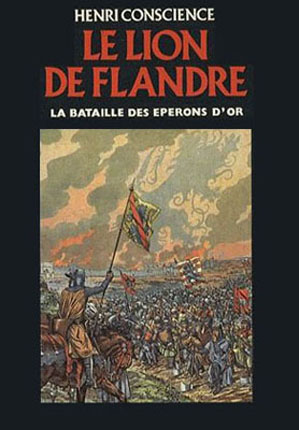
This can also perfectly be read in Hendrik Conscience’s position. He is the first real Flemish writer and considered as « the one who taught his people how to read ». His most famous work is Le Lion des Flandres.
When he published his first book In’t Wonderjear 1566 in 1837, he told the struggle between the Spanish oppressor and the Catholic Inquisition. But all the re-printings deleted every criticism of Catholicism, which had taken the ideological lead of the Flemish peasants.
Liberalism was presented as « the party of France » and he held out the possibility of an idealised Middle Ages and a return to Flemish language, exclusively. He held this out as the only way to progress, both socially and culturally.
This was all the more easier that French had become the cities’ language as well as the language of the bourgeoisie, both Walloon and Flemish. The administrative recognition of the Flemish language, spoken by most people, was thus very slow, nay clearly put aside.
This background movement played a basic role in the spreading of religion and of a romantic anti-capitalism idealising the Middle Ages, contradicting the aspects of united clerical, Liberal and Socialist parties.
Faced with the Flemish demands, which basis was democratic even if it expressed itself in a reactionary way, the bourgeoisie didn’t hesitate to promote the logic of division, of separation. It feared to be weakened by the demands made.
Jules Destrée, a Liberal who became « Socialist », expressed this leanings in 1912 in a letter to Albert I. One can read, among others :
« Sire, please first forget that the one who dares addressing you here is a Socialist deputy. What I want to tell you, any Catholic or Liberal could tell it, just like me (…).
Let me tell you the truth, the great and horrifying truth: there are no Belgians. I mean that Belgium is a political State, quite artificially set up, but it is not a nationality. It dates from 1830 (…).
Flanders is mainly agricultural, while Wallonia is mainly industrial (…). Flanders is mainly Catholic, sometimes aggressively and meanly Catholic; on the contrary, in Wallonia, faith has become a mere habit and there are many freethinkers (…).
A second species of Belgians developed in the country, in particular in Brussels. It is really not much interesting. It seems that they added up the defects of both races while loosing their qualities. Its means of expression is a foul gibberish. The Beulemans and Kakebroek families popularized its unexpected drollness [they are characters created by the writer Leopold Courouble]. It is ignorant and sceptical. Its ideal is a comfortable second-rate status (…).
No Sire, there is no Belgian soul. A merging between Flemish and Walloons is not desirable.
And even if we wanted it, it has to be noticed that it is impossible (…).
They (the Flemish people) have stolen our past (…) When we think of the past, great names such as Breydel, Van Artevelde, Marnix, Annessens rise in our memory. All of them are Flemish! We don’t know anything about our Walloon past.
They have stolen our artists (…) They have stolen our security (…). They have stolen our freedom (…). They have stolen our language (…) The Flemish people never step back. They have the sweet obstinacy of fanaticism ».
Belgium’s political system was a parliamentary monarchy, which allowed the free development of capitalism, while preserving a powerful clergy as well as a monarchy of which the king headed the initiative of the murderous colonisation of Congo at the end of the 19th century.
In their book published within social democracy in 1911 on Le mouvement ouvrier en Belgique, Henri de Man and Louis de Brouckère talked about « the Belgian mystery » like this :
« Belgium is an economically very advanced country, but culturally, it is very backward. It is the most industrialized country of the world, but it is ruled by a clerical-agricultural party (…). The Socialist party is like nowhere else quite exclusively made of proletarian elements. But the dominant spirit here is, to some extent, even more petty bourgeois than in France, for instance. »
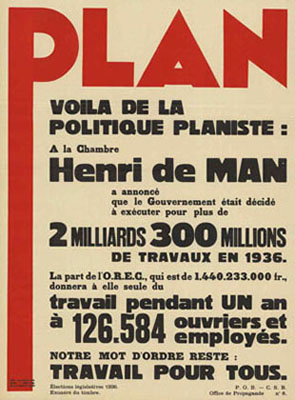
It is interesting to see that later on, Henri de Man started following « neo-Socialism » and supported Nazi Germany, while Louis de Brouckère advocated an economic union which took Brussels as a capital.
Both Henri de Man and Louis de Brouckère thought that it was needed to take advantage of an external burst to overstep the Belgian « localisms » and senses of identity. According to them, they were due to romantic anti-capitalism and strengthened both the clergy and the local structures in a Middle Ages spirit.
This reasoning was also made, but inversely, by the ultra Catholic forces bound to Wallonia and represented by the Leon Degrelle’s Rexist Party as well as by pro-Netherlands forces such as Joris Van Severen’s Verdinaso in favour of a « Groot-Nederland » and Flemish separatist forces bound to the VNV (Flemish National Union).
Contrary to the theses of Henri Pirenne, a bourgeois historian who wrote seven volumes, making Belgium a « national civilization » born behind Charlemagne, Belgium was born through the establishing of a capitalist basis, which was temporarily slowed down by the Spanish intervention.
This birth has been unable to assert a national structure because of its historical relations with Joseph II and Napoleon. The result was a deep unequal development, the division between urban and rural realities becoming more pronounced at the expense of the Flemish peasants.
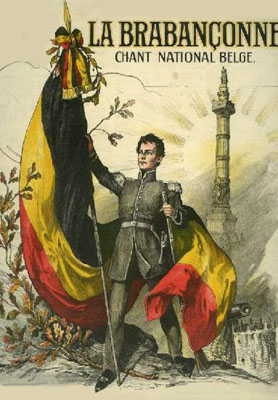
The Flemish democratic demands were, however unable to express themselves other than by idealistic-separatist distortions (Vlaams Block, Vlaams Belang, etc.) or by an ultra-democratic « basism » (AMADA, PTB, etc.). It allowed the upholding of Walloon liberalism, using Brussels as the guarantee of historical unity.
The clergy, which was still paid by the State up to almost a hundred million euros per year, supported the regime’s stabilization through an instability provoked by the neighbouring imperialist powers trying to make Belgium into a satellite State.
It is interesting to note that in the cycling world, ASO, the company owning the Tour de France also detains two classical races, Liège-Bastogne-Liège and the Flèche Wallonne. Separatism to serve a satellization, the passive upholding of the regime in the European Union, etc. do not obscure the historical necessity for a democratic union, which goes through the division between the State and religion, the overtaking of administrative splits by a legal unification thanks to an absolute and systematic bilingualism.
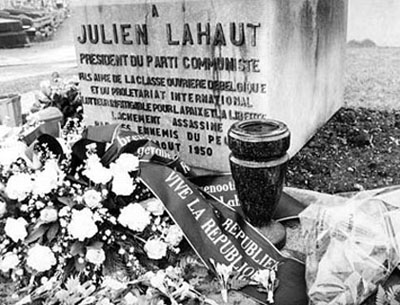
The bourgeoisie has failed in this task. Thus, it came back to Socialism. The Communists must base themselves on the failure of 1950 when, despite a great mass movement, the system remained while it had lost its credibility. This reactionary maintenance went through Julien Lahaut’s murder, Communist leader, in Augustus 1950. This happened a week after Baudouin I took the oath in Parliament, while the Communists welcomed him to shouts of « Long live the Republic ! ».
Marxist Leninist Maoist Center [Belgium]
1st Septembre 2016